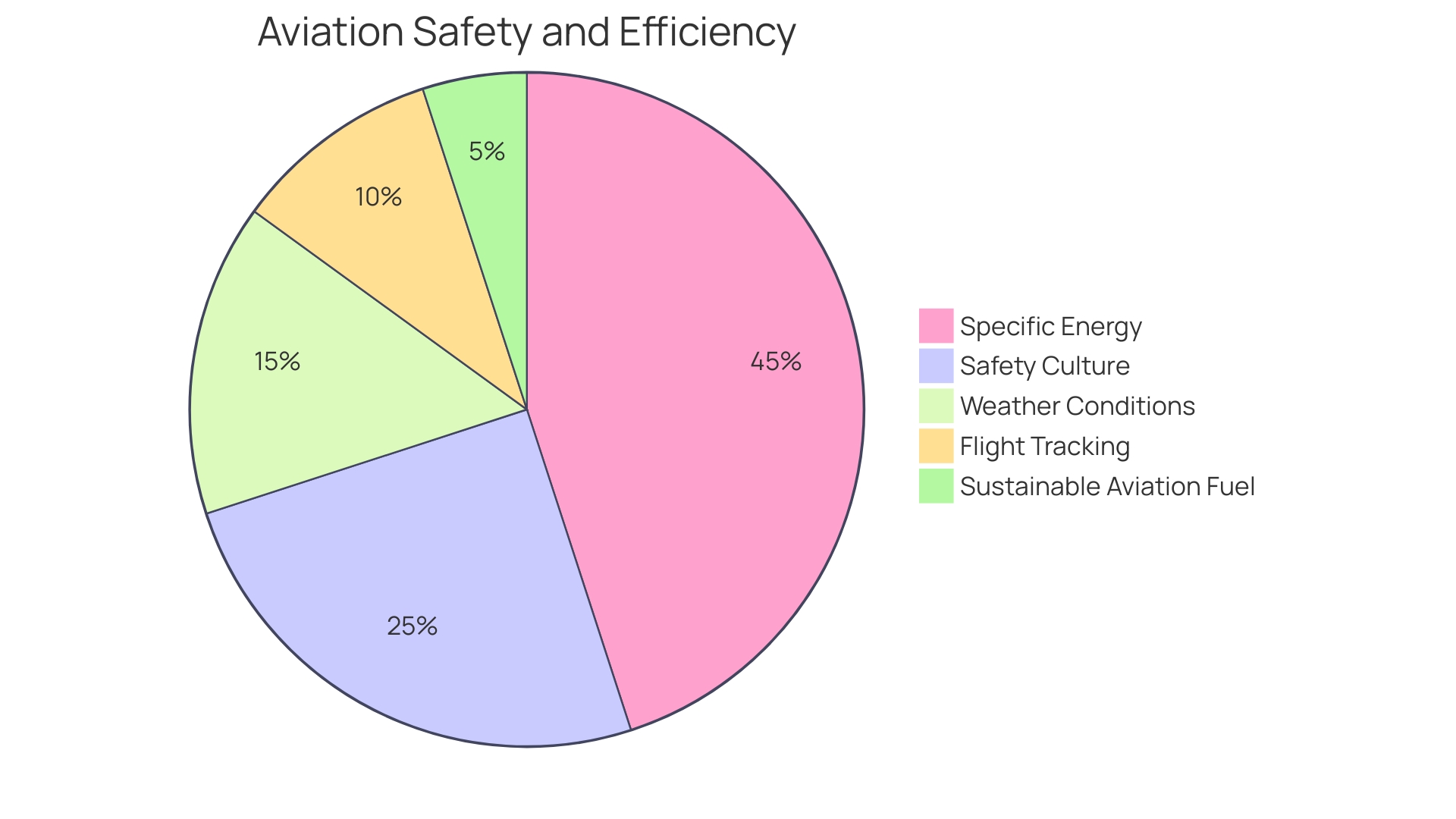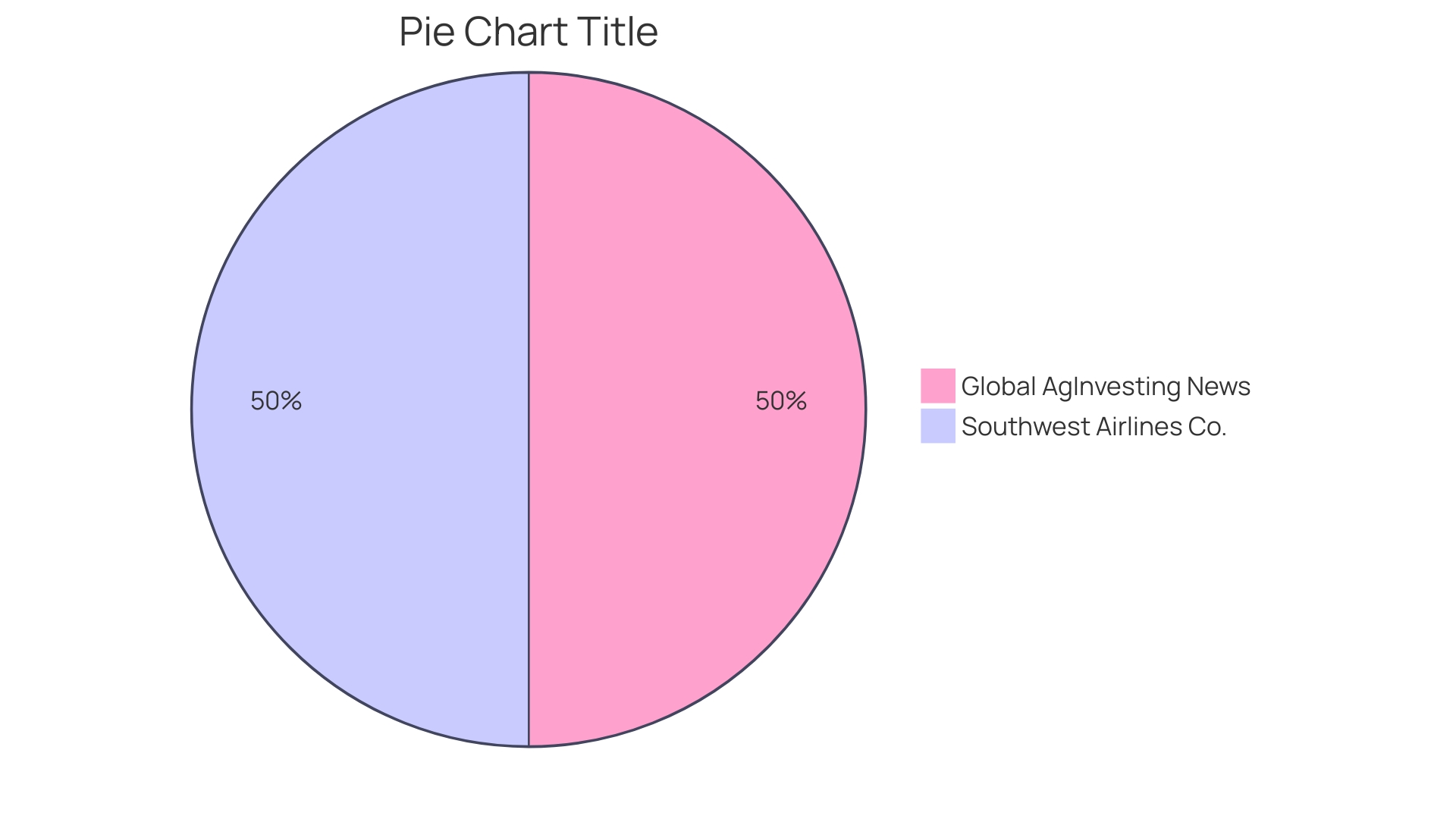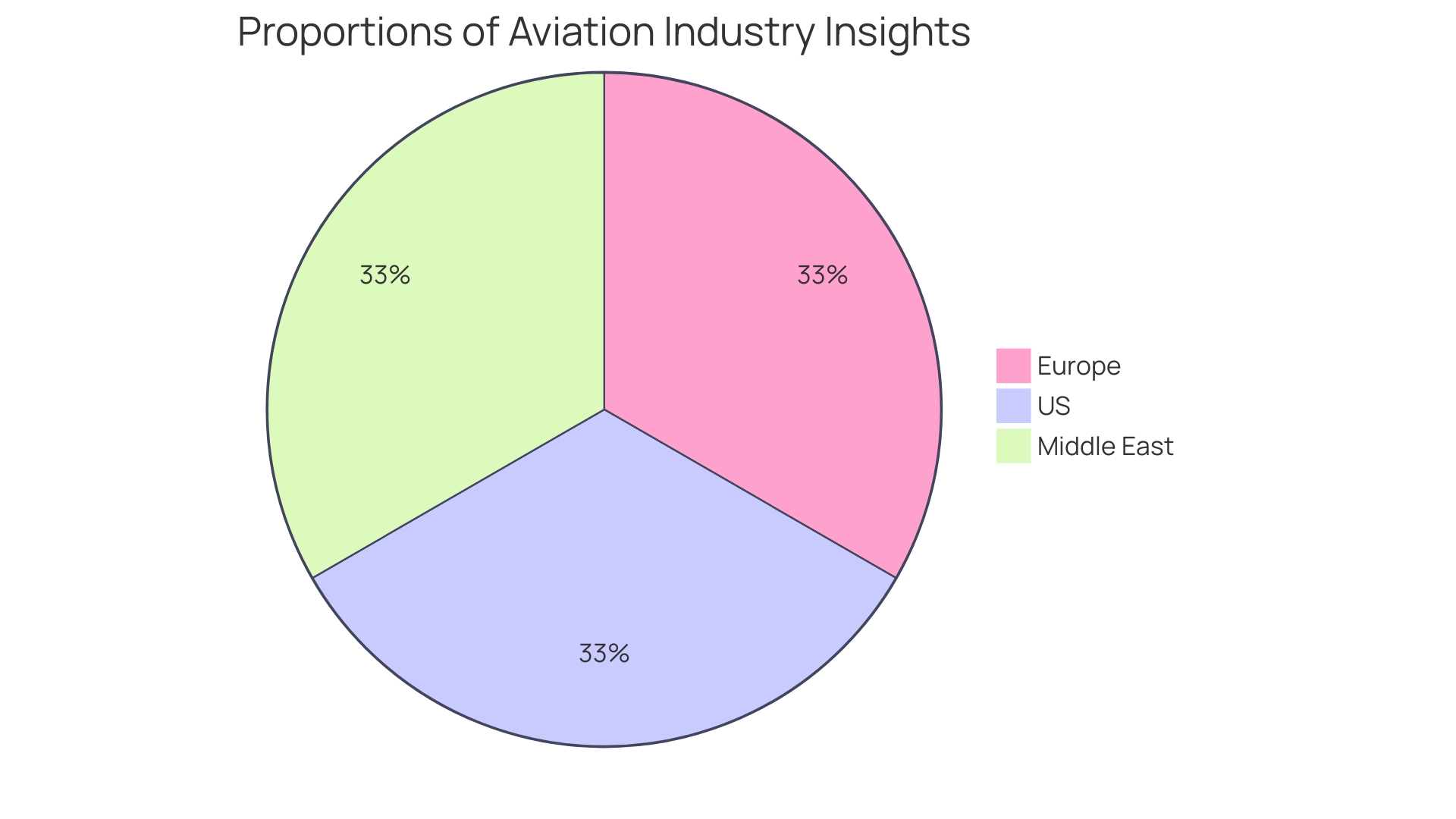Introduction
Southwest Airlines, a prominent force in the aviation sector, has embraced the move towards environmental stewardship through the integration of sustainable aviation fuel (SAF) into their operations. This commitment signifies a significant leap in the industry's pursuit of net-zero carbon emissions. The adoption of SAF by Southwest Airlines highlights the airline's proactive approach to mitigate environmental impact and align with the aviation industry's safety and sustainability culture.
As airlines like Southwest Airlines pioneer the use of SAF amidst a complex matrix of economic, social, and environmental factors, their journey serves not only as a testament to their dedication to sustainability but also as a blueprint for the industry's progression towards a more sustainable and resilient future.
Southwest Airlines' Commitment to Sustainability
Southwest Airlines, a prominent force in the aviation sector, has earnestly embraced the move towards environmental stewardship through the integration of sustainable aviation fuel (SAF) into their operations. SAF, distinguished from traditional jet fuel by its renewable origins, is derived from sources such as cooking oils, fats, and agricultural waste. The adoption of SAF by Southwest Airlines signifies a significant leap in the industry's pursuit of net-zero carbon emissions.
According to the International Air Transport Association (IATA), the utilization of SAF can lead to an emissions reduction of up to 80% in comparison to conventional fuels, marking it as a crucial step towards sustainable mass transportation.
Amidst the challenges of extreme weather, competitive pressures, and shifting consumer perceptions, Southwest Airlines' commitment to SAF highlights the airline's proactive approach to mitigate environmental impact and align with the aviation industry's safety and sustainability culture. The case of Southwest Airlines demonstrates the potential for large-scale SAF implementation, despite the fact that currently, only a small fraction of flights are powered by this alternative fuel. The drive to scale up SAF production is reinforced by a World Economic Forum report, which emphasizes the need for collaboration among aviation and energy stakeholders, supported by strategic financial and policy initiatives, to overcome barriers and bolster SAF's affordability and availability.
As airlines like Southwest Airlines pioneer the use of SAF amidst a complex matrix of economic, social, and environmental factors, their journey serves not only as a testament to their dedication to sustainability but also as a blueprint for the industry's progression towards a more sustainable and resilient future.
Acquisition of SAFFiRE Renewables
Southwest Airlines, in a visionary stride towards sustainability, recently acquired Saffire Renewables, a leading SAF producer. This move is a testament to the aviation industry's drive towards net-zero carbon emissions by 2050, as echoed by Delta Air Lines' ambition to replace 10% of their annual fuel consumption with SAF by 2030. SAF, crafted from renewable waste like used cooking oils, is a drop-in solution compatible with existing engines and infrastructure.
Southwest's acquisition ensures adherence to their high-quality fuel standards and demonstrates the industry's commitment to innovative partnerships and educational efforts to elucidate the benefits of SAF. As companies like Neste offer solutions to meet sustainability targets, Southwest's proactive approach serves as a beacon, underscoring the importance of safe in the journey towards a more sustainable aviation future.

Technology and Feedstock Used by SAFFiRE
Leveraging cutting-edge technology and unconventional resources, Saffire Renewables is at the forefront of sustainable aviation fuel (SAF) production. By transforming agricultural byproducts and non-edible plant oils through an innovative proprietary process, Saffire is producing SAF that not only meets but exceeds the environmental and quality benchmarks of traditional jet fuels. This initiative plays a critical role in the aviation industry's ambitious journey towards a net-zero carbon footprint by 2050, aligning with the sector's commitment to reduce its reliance on fossil fuels.
The transformative potential of SAF has been underscored by the successful transatlantic flight powered by a blend of fats and sugars, signaling a paradigm shift in aviation fuel sources. As airlines like Delta aim to replace 10% of their jet fuel with SAF by 2030, the move towards renewable waste and residue materials, such as used cooking oils and animal fat waste, is gaining momentum. This drop-in fuel solution seamlessly integrates with existing aircraft engines and infrastructure, marking a significant step in addressing the less than 0.2% of the U.S. airline industry's current SAF consumption.
With the aviation sector responsible for 2% of global carbon emissions, the transition to SAF is not merely an environmental imperative but also a business one. As highlighted by the partnership between Airbus and Neste, and the collaborative efforts of leading airlines, the push for SAF adoption is accompanied by a need for continuous education about its benefits and the dispelling of myths. The collective effort to scale SAF production is gaining traction, with stakeholders across various industries and public sectors contributing insights and recommendations to create an environment conducive to Saf's growth.
Partnership with LanzaJet for SAF Production
In a landmark move, Southwest Airlines is joining forces with LanzaJet to harness the latter's pioneering alcohol-to-jet (ATJ) technology, which holds the promise of scaling up the production of Sustainable Aviation Fuel (SAF) using sustainable ethanol sources. This alliance is more than a mere enhancement of Southwest's capabilities in SAF production; it represents a significant step forward in advancing the methods of SAF generation. The collaboration underscores the broader industry's commitment to decarbonize aviation—a goal that is paramount, considering the insights from stakeholders across various regions, who emphasize the need for concerted efforts in policy and financial strategies to foster environments conducive to SAF expansion.
Moreover, it reflects a growing awareness of the critical role of SAF in achieving net-zero emissions, a sentiment echoed by industry experts who advocate for the collective action necessary to meet the Paris Agreement targets. Such partnerships are essential in making the once-impossible task of transitioning to green energy a tangible reality, thereby contributing to the sustainable development of the global economy.
Development of Pilot Plant and Commercial-Scale Production
As the aviation industry strives for a sustainable future, airlines like Southwest are making significant headway. By launching a pilot plant dedicated to the refinement of sustainable aviation fuel (SAF) production processes, Southwest Airlines is making tangible efforts to catalyze the transition to commercial-scale SAF production. SAF, considered a linchpin in decarbonizing aviation, is created from renewable waste and residue materials, offering a drop-in solution compatible with existing aircraft engines and fuel infrastructures.
It's a promising step toward reducing the industry's reliance on conventional jet fuel, which accounts for about 90% of its carbon emissions, as highlighted by Delta Air Lines' Chief Sustainability Officer, Amelia DeLuca. With a goal to replace 10% of their annual 4 billion gallons of jet fuel with SAF by 2030, such initiatives demonstrate a proactive approach to achieving net-zero emissions. However, the success of SAF hinges not only on technological advancements but also on public awareness and acceptance.
Debunking myths and educating consumers about Saf's benefits, such as its potential to be made from materials like used cooking oil, is crucial for garnering support and advancing the industry's sustainability goals. Collaborative efforts, as seen in the partnership between Airbus and Neste, are propelling the sector towards its ambitious 2050 net-zero target. These partnerships emphasize the critical role of private and public investment in fostering innovation and ensuring the availability of SAF as a viable, sustainable alternative for air travel.
Impact on Greenhouse Gas Emissions
Southwest Airlines has made strides in embracing sustainable aviation fuel (SAF), leading to a significant reduction in its greenhouse gas emissions. This innovative fuel, which can even be produced from used cooking oil, has the potential to emit up to 70% less carbon dioxide than conventional jet fuel over its lifecycle. As a result, Southwest's integration of SAF aligns with its sustainability objectives, marking a critical step towards the aviation sector's broader ambition of achieving net-zero carbon emissions.
Although SAF currently powers only a fraction of flights, partnerships and continued education on its benefits are vital to expanding its use. With the environmental impact of commercial aviation being a contributor to human-made changes in the Earth's energy balance, the move towards fuels like SAF is not just a corporate responsibility but also an imperative for the health of our planet and future generations.

Southwest's Net Zero Carbon Emissions Goal by 2050
Southwest Airlines has embraced a bold vision for a greener future, committing to net-zero carbon emissions by the mid-21st century. At the heart of this initiative is the strategic integration of sustainable aviation fuel (SAF). By increasing investment in SAF technology and its widespread application, Southwest aims not only to reduce its environmental footprint but also to spearhead the aviation sector's transition to more sustainable operations.
The airline is cognizant of the pressing need to mitigate the effects of climate change, with SAF serving as a pivotal element in their comprehensive strategy to achieve a more sustainable aviation industry. This aligns with broader industry movements, such as the recent milestone flight by Virgin Atlantic that symbolizes the collective effort towards net-zero emissions, and partnerships like Airbus Neste x Airbus, which are instrumental in the decarbonization of aviation. Furthermore, the use of SAF is bolstered by Neste's commitment to sustainability through its Neste Impact initiative, ensuring that fuel is produced with sustainably sourced raw materials and adheres to stringent sustainability audits.
As the industry confronts the environmental impacts of aviation, which accounts for approximately 3.5 percent of human-induced climate change factors, SAF emerges as a critical component in reducing CO2 emissions and other pollutants such as NOx, which have significant health implications for communities surrounding airports. Southwest's proactive stance on SAF utilization not only exemplifies environmental responsibility but also underscores the airline's commitment to innovation and customer service excellence, mirroring the ethos of industry pioneers like Virgin Atlantic.
Challenges and Opportunities in Scaling SAF
As the aviation industry embarks on a transformative journey towards net-zero carbon emissions by 2050, the spotlight shines on Sustainable Aviation Fuel (SAF) as a pivotal player. Key airlines, including Southwest Airlines, are at the forefront of this transition, with Delta Air Lines setting ambitious milestones to substitute 10% of their conventional jet fuel with SAF by 2030. Saf's production from renewable waste and residue materials, such as used cooking oils, indicates a shift away from crude oil, offering a drop-in solution compatible with existing aircraft engines and fuel infrastructure.
However, scaling SAF production is not without its challenges. The availability of feedstocks, cost considerations, regulatory frameworks, and the need for infrastructure development are critical hurdles to overcome. For instance, the groundbreaking LanzaJet Freedom Pines Fuels plant in Georgia represents a monumental stride, marking the world's first ethanol-to-SAF facility, which utilizes sustainable feedstock and waste-based solutions.
This innovation underscores the role of technology in enabling scalable SAF production that aligns with the growing demand for decarbonization.
To navigate these complexities, a multi-faceted approach is essential. Collaboration across the aviation and energy sectors, bolstered by public sector support, is paramount. Partnerships like that of Airbus and Neste exemplify the synergy required to decarbonize aviation.
Furthermore, educating consumers about Saf's potential and benefits is equally important, as highlighted by industry leaders who note the significance of raising awareness and debunking misconceptions surrounding SAF.
The transformative potential of SAF in reducing aviation's environmental footprint is evident. As we witness pioneering initiatives and partnerships taking shape, the vision of a sustainable aviation industry is gradually becoming a tangible reality, promising a healthier planet for future generations.

Conclusion
Southwest Airlines' adoption of sustainable aviation fuel (SAF) represents a significant leap towards achieving net-zero carbon emissions in the aviation industry. Their proactive approach in mitigating environmental impact and aligning with the industry's sustainability culture serves as a blueprint for a more sustainable and resilient future.
Partnerships and collaborations are crucial in scaling up SAF production. Southwest Airlines' acquisition of SAFFiRE Renewables, a leading SAF producer, highlights the importance of innovative partnerships and educational efforts. SAFFiRE's cutting-edge technology exceeds environmental and quality benchmarks, emphasizing the potential for large-scale SAF implementation.
The alliance between Southwest Airlines and LanzaJet, harnessing alcohol-to-jet (ATJ) technology, further advances SAF generation methods. These partnerships reflect the industry's commitment to decarbonize aviation, contributing to the sustainable development of the global economy.
The integration of SAF by Southwest Airlines has a significant impact on greenhouse gas emissions, with the potential to emit up to 70% less carbon dioxide than conventional jet fuel. This aligns with Southwest's sustainability objectives and the broader ambition of achieving net-zero carbon emissions in the aviation sector.
Southwest Airlines' commitment to achieving net-zero carbon emissions by 2050 is a bold vision for a greener future. SAF plays a pivotal role in their comprehensive strategy to transition to more sustainable operations. This aligns with industry movements and partnerships that are instrumental in the decarbonization of aviation.
While scaling SAF production presents challenges, collaboration and public sector support are essential. Partnerships across the aviation and energy sectors, along with education about SAF's potential and benefits, are vital in navigating these complexities and realizing the transformative potential of SAF in reducing aviation's environmental footprint.
In conclusion, Southwest Airlines' integration of sustainable aviation fuel showcases their dedication to sustainability and serves as an example for the industry's progression towards a more sustainable future. With their proactive approach and collaborative efforts, Southwest Airlines is contributing to a greener and more resilient aviation industry.




